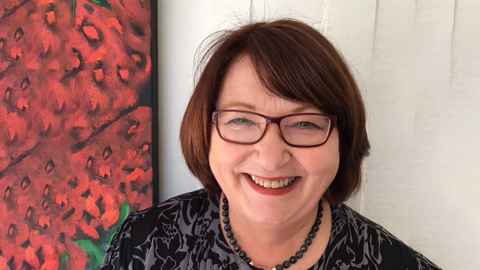Time to change outdated abortion laws
29 October 2018
Opinion: Current New Zealand abortion law disregards the human rights of women and puts us out of step internationally, writes Associate Professor Liz Beddoe.

Abortion rights for women in Aotearoa New Zealand is an issue that is likely to become more visible in the months to come.
During the 2017 election campaign PM Jacinda Ardern promised to reform New Zealand’s abortion laws. The coalition government has taken steps to keep Jacinda Ardern’s promise. In February 2018, at the prime minister’s instigation, the Law Commission was asked to undertake a review of New Zealand’s abortion laws. Minister of Justice Andrew Little has asked for options on how to change the legal framework to treat abortion as a health matter, rather than a criminal matter.
This is different from the usual Law Commission review, which results in recommendations rather than options. The Law Commission is due to report back at the end of October and law reform activists are hoping for decriminalisation. The law commission report is expected to be released this Friday (26 October).
Women’s groups and ALRANZ (the Abortion Law Reform Association of New Zealand) have been campaigning for the decriminalisation of abortion for decades. But it has remained in the Crimes Act. As ALRANZ argues, “women should not have to jump through hoops to get healthcare” and that abortion is a health service.
The 1977 Contraception, Sterilisation and Abortion Act is so out of date that the youngest people who voted in the election before the abortion vote in NZ (1975 election, 1977 vote) would be 61 today. As one Tweeter said “Barring medical marvels, no one currently of child-bearing age has had an opportunity to vote on this issue”.
The current law disregards the human rights of women and is not in accordance with international treaties to which New Zealand is a signatory, especially the Convention on the Elimination of All forms of Discrimination Against Women (CEDAW). In the current legislation, for example, sexual violation, the age of the woman, her health and social circumstances and so forth are not grounds for abortion but only matters to be taken into consideration by the two doctors who act as certifying consultants.
It is clearly discriminatory that women are not entitled to make their own decisions about having an abortion, which is such a personal and significant choice.
There is a difficulty for women seeking abortions on the grounds of fetal abnormality. This is a ground for termination up to 20 weeks but sometimes a diagnosis is not made until after 20 weeks and the abortion must then be done on the grounds of serious permanent injury to the mental health of the woman. Campaigners, and indeed the Abortion Supervisory Committee, have pointed out this anomaly to Parliament frequently but no action has been taken. This situation is distressing for the woman and her family. In addition, the language used in the Crimes Act – for example, “mentally abnormal”, “seriously handicapped” and “severely subnormal” – is from a bygone age.
It is clearly discriminatory that women are not entitled to make their own decisions about having an abortion, which is such a personal and significant choice.
The current system is discriminatory because while in a democracy there should be tolerance for different beliefs, anti-choice groups have imposed their views on New Zealand women for decades through political manipulation, dishonest media campaigns and blatant physical interference with women taking up their legal right to request a medical service.
As a professional who worked in such service I was personally harassed and threatened, and even experienced an arson attack on my workplace. I dealt every day with the impact of anti-choice individuals and groups who deliberately set out to harass and intimidate. That this continues in 2018 is an indictment on lawmakers.
The current system is unduly complex and expensive. For the year ending 30 June 2016, the fees to certifying consultants alone amounted to around $4 million ($3,716,766). This is a direct transfer of health dollars to a group of often wealthy individuals.The procedures are unnecessarily complicated and set up bureaucratic and logistical barriers to good reproductive health care. Vulnerable, young and rural women are disadvantaged. This results in discriminatory service provision. Geographical variation in abortion and related counselling services throughout New Zealand is inequitable.
The system of certifying consultants is not only expensive but unnecessary and patronising to women. This money could be better spent on preventing unplanned pregnancies and supporting women who are vulnerable, but who wish to continue with their pregnancy. The system is intrusive and punitive, ignoring facts that contraception is not perfect, and women can be coerced into not using it. Enforced pregnancy is not in the long-term interests of society. Women always want to give their children the best start in life and if they feel unable to continue a pregnancy, that decision should be theirs alone.
The current law is outdated and does not take account of change in public attitudes towards abortion and other reproductive health issues. The current law was a political compromise in a parliament dominated by men who demonstrated little understanding or compassion for women facing an unplanned and unwanted pregnancy. I am pleased that there is an opportunity for parliamentarians to do the right thing now and decriminalise abortion and set in place what is needed for high quality, supportive and equitable services.
Associate Professor Liz Beddoe is from the School of Counselling, Human Services and Social Work at the University of Auckland Faculty of Education and Social Work. This article reflects the opinion of the author and not the views of the University of Auckland.
Used with permission from Newsroom, Time to change outdated abortion laws published on 26 October 2018.